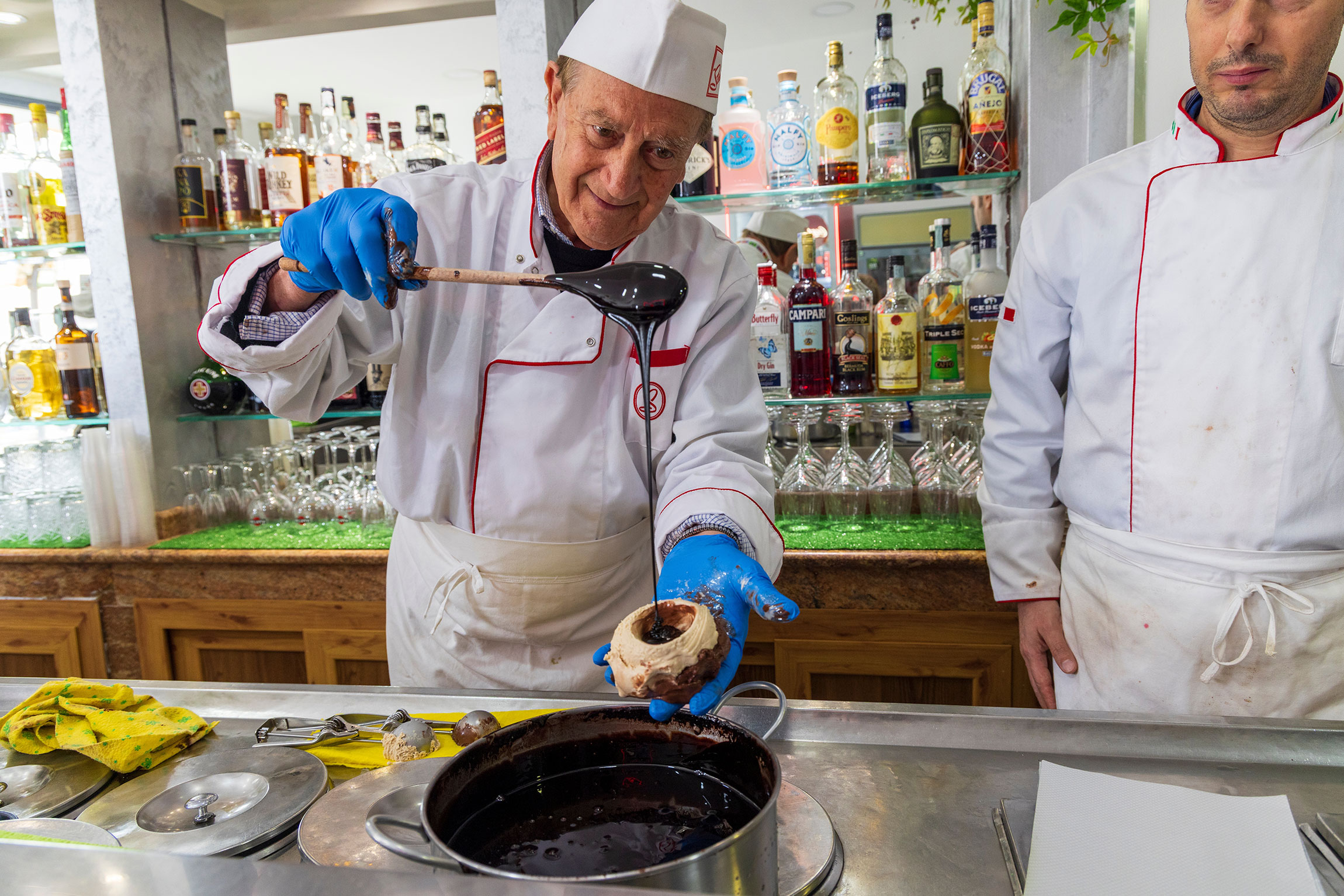At a recent movie screening of La Scelta di Catia—80 Miglia a Sud di Lampedusa, I had the opportunity to talk about the film with its director, Roberto Burchielli. Mr. Burchielli is from Milan and spent fifteen months on the ocean with the first female captain of the Italian Navy, Catia Pellegrino. Burchielli’s compassion for the human condition comes through in his movie of ninety-two minutes, as he chronicles the rescues of many refugees left adrift in small boats off the North-east coast of Africa.
From different war torn countries, many cultures are thrown together in these small dilapidated boats and left to drift on the currents of the sea. The people in the boats come from places like Nigeria, Syria, Turkey, Iraq, Eritrea, Somalia, and other countries caught amid the struggle for freedom from dictatorships and political unrest.
Some carry backpacks or bags with whatever they think they can use in their migration. To see a person’s worldly possessions emptied on the dock of the ship and catalogued is very humbling and sad. A jar of jam, a notebook, headphones to an iPod or phone, a tattered blanket, these items are a source of comfort and something to hang on to while they are in flight from danger. Maybe they represent that they have something of value? That they are not worthless, that beneath it all, they are human beings with lives that once had stable homes.
In speaking to Roberto, it is at once apparent how this docu-drama has more than one layer of meaning. When he first began the project, he set out to bring attention to Catia Pellegrino, the first female captain of the Italian Navy. He wanted to show the positive influence of Catia’s strength and empathetic nature in serving others and maintaining vigilance in keeping the seas safe on her watch. It is in humility that we begin to see this blossoming story.
The vessel, the Libra, and its crew of brave men plucked many people from small boats that were filled to capacity. Among the many frightened refugees, were so many women and children looking for sanctuary from the troubled lands they had left behind. As Roberto continued filming aboard the Libra, tight quarters and difficult conditions on the sea brought more challenges to the filming of the movie. Oftentimes, Captain Pellegrino would become angry and order filming to stop.
A program, called the Mare Nostrum was put in place to help those fleeing and Catia’s ship, the Libra, was a very big part of saving those in dire need of help. Mare Nostrum is a preservation project funded by the European Union to help with cross border relations and those areas with compromised interior development pressures.
Being the exceptional director that he is, Burchielli pushed on and began to see other layers in his emotional and compassionate work coming to light. Roberto commented that it was not always easy to keep filming due to rough seas and sea sickness often resulted. As his project came together, he soon realized that as a female, Catia had earned the respect and admiration of her crew. She was the only female on the Libra and throughout the movie she maintained the elegant dignity that afforded her the privilege of being called ‘Comandante’. It was very raw and painful to see the vacant stares behind beautiful eyes of those displaced men, women, and children. Each human being with a tragic story behind eyes so frightened that they were willing to chance death, rather than suffer any longer in homelands marred by war and violence.
As a result of this, we see how the Italian Navy has now become nurturers, and not just soldiers in providing safe haven for those they help. In one scene, a crew member begins to cry as he is recalling the dead bodies he must retrieve from the churning waters. As he is doing his duty, he is struck by the idea of his own daughter’s life and safety.
Mr. Burchielli mentions that there are some things too sad and gruesome to film and they must stop to collect themselves at one point. One particular scene seems to represent the meaning of the entire film more than any other. The camera is focused on the bare feet of the refugees boarding the Libra. Focusing on their feet may perhaps represent the journey we all make in one way or another. Bare or wearing only one shoe in some cases, it was a moment to be understood that they were in flight, in a hurry, and in need of help. It is understood that Catia and the crew of the Libra washed away the fears of the people they saved. As Mr. Burchielli shared his experience with me, I could tell that his work had begun on one topic, but evolved and grew into something else as those fifteen months brought more refugees and heart wrenching images in front of his cameras.
There is darkness in our world at times, but there are those few people that glow like a candle, lighting a path of hope to those in need. Perhaps Mr. Roberto Burchielli bringing light to Catia Pellegrino and the crew of the Libra, is the candle that helps conquer some of that darkness.

























